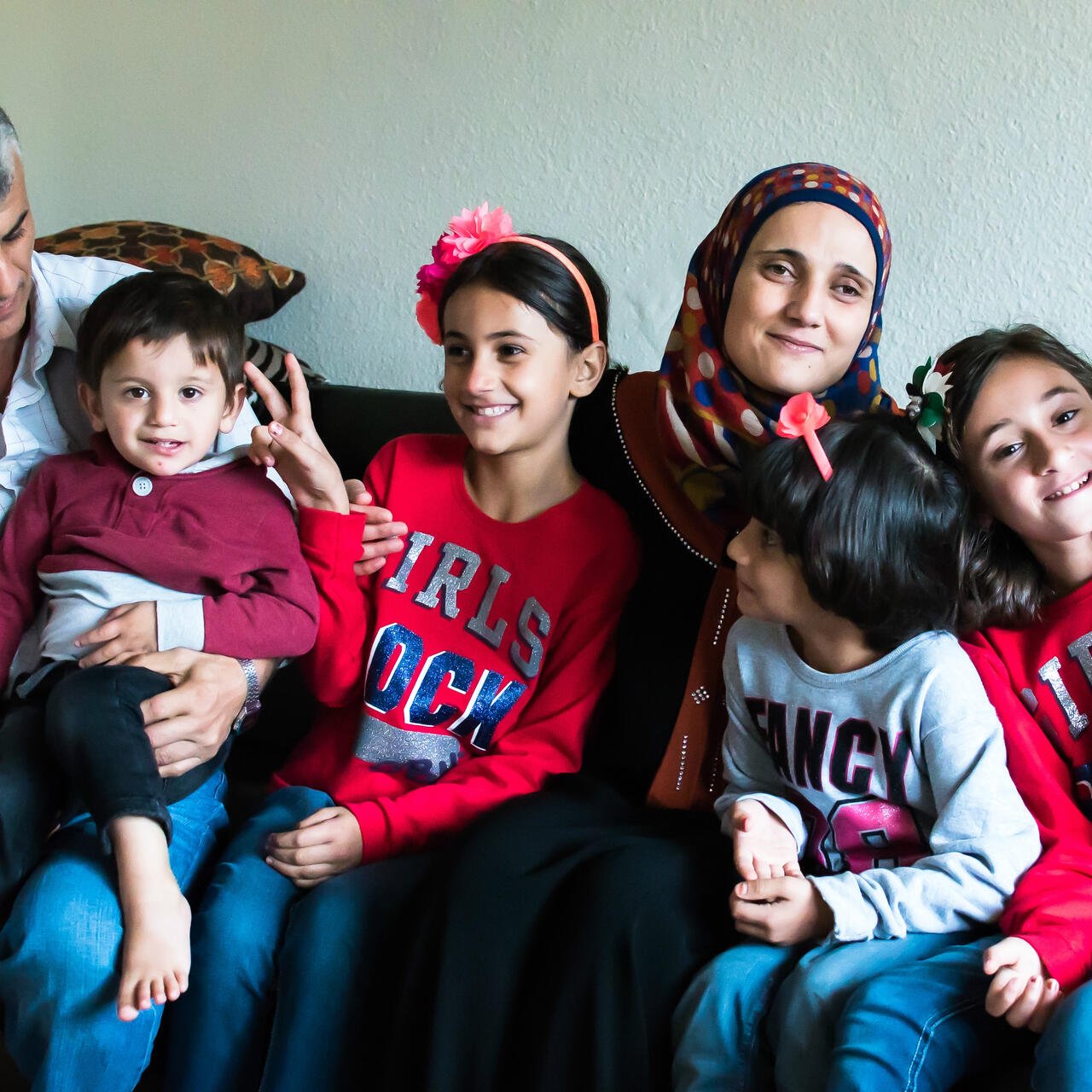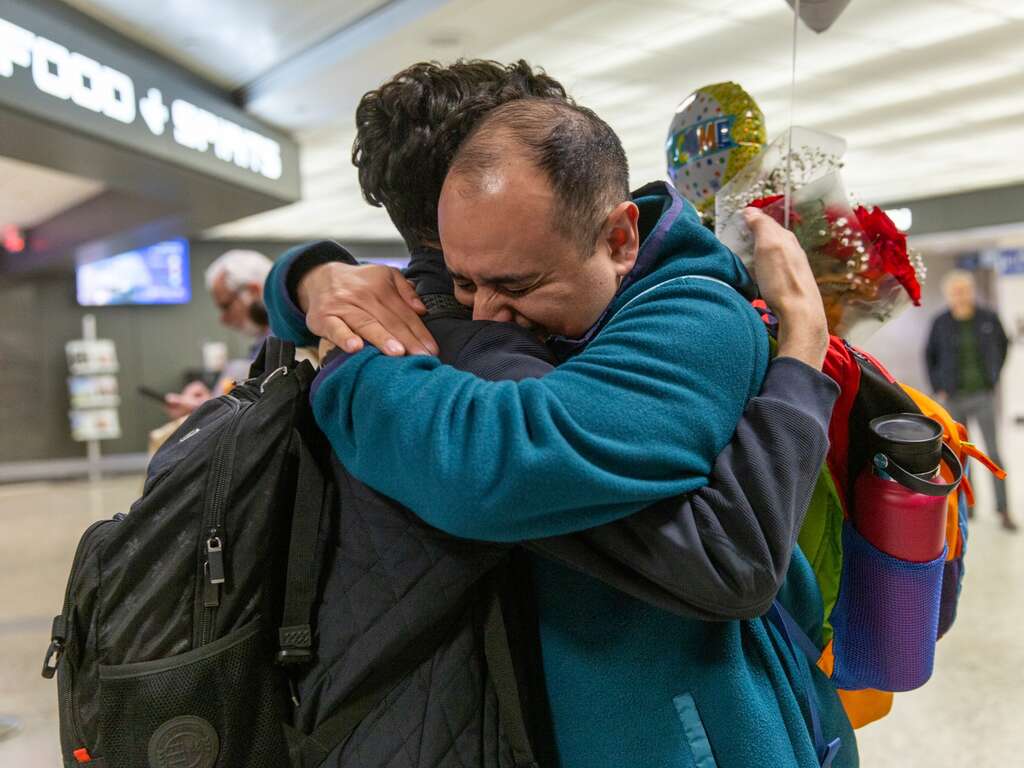
Immediately after taking office, President Donald Trump instituted a travel ban that labeled refugees a security threat, suspended the U.S. refugee resettlement program, and cut the number of refugees approved to arrive in 2017 by more than half. Now, the White House has capped refugee arrivals in 2019 at 30,000—an historic low.
We take a look at some of the facts the Trump administration doesn’t grasp about refugees, and explain how the administration's refugee policies weaken America and endanger the lives of desperate people fleeing violence and persecution.
1. Refugees are not a security risk.
The U.S. resettlement program gives priority to refugees, usually vulnerable families, who have been targeted by violence. There is no evidence that refugees or children of refugees are more of a security risk than any other American.
According to the Cato Institute, the chance of being killed by a refugee in America is one in 3.6 billion. While over 3 million refugees have been admitted to the U.S. since 1980, not a single refugee has committed a lethal terrorist attack on U.S. soil.
It’s worth noting that many of the refugees invited to resettle in America are here because their work supporting U.S. forces in their home countries—as translators or in other roles—put their lives in danger.
2. The U.S. refugee vetting process is already the world’s most secure.
Refugees are the most thoroughly vetted group to enter the U.S. In a process that can take more than two years, refugees must undergo a series of interviews, background checks, medical screenings, and classes to ensure that they can safely and securely resettle in the U.S.
"The U.S has the most stringent & thorough processes for vetting." @SenatorCardin decries Trump’s refugee cap: https://t.co/oKslcpIZGE pic.twitter.com/Kg5a9FoC8B
— IRC Intl Rescue Comm (@theIRC) September 28, 2017
3. Rejecting refugees actually feeds terrorism.
Preventing refugees from entering the U.S. based on their religion or country of origin could motivate others to plot harm against the U.S. The Trump travel ban is a gift to America’s enemies, like ISIS, who relish any opportunity to portray the U.S. as a country of self-interest and moral bankruptcy, and one that does not value Muslim lives.
4. Humanitarian aid is not a substitute for refugee resettlement.
For many refugees stuck in countries plagued by violence and natural disaster, humanitarian aid on the ground is not enough. If they have urgent safety, medical or family concerns, resettlement to a third country is their only option. For example, refugees are often women and girls who endured traumatic violence, and do not have access to proper treatment in refugee camps.
5. Refugees benefit local economies and fill empty jobs in the workforce.
Over the past decade, refugees have contributed $63 billion more than they cost, according to a recent report commissioned by Trump’s own administration. Refugees who enter the country between the ages of 18 and 45 also pay on average $21,000 more in taxes than they receive in benefits over a 20-year period.
Fact: Refugees are good for the economy. Learn why at least 75K refugees should come to US in FY18: https://t.co/uD9uqSN4b7 pic.twitter.com/eph6VKHbeW
— IRC Intl Rescue Comm (@theIRC) September 26, 2017
6. Refugee resettlement is important for U.S. foreign policy and national security.
Refugee resettlement is a critical foreign policy and national security tool. It removes the burden from our allies, promotes humanitarianism across the globe, and shows terrorists that the U.S. welcomes those who reject terrorist ideologies.
7. The U.S. has long shown bipartisan support in offering safe haven to refugees.
Until now, no matter who has been in the White House, America has long been a beacon of hope for refugees. In fact, refugee resettlement hit record numbers during the administrations of Ronald Reagan and George H.W. Bush.
Both Democratic and Republican presidents have ensured that America leads in times of crisis: They've supported refugees who seek liberty and reject ideologies opposed to American values. This legacy of welcome has enriched our communities and our economy.
The Trump administration has set a historically low refugee cap. No US president has turned their back on refugees. https://t.co/vsjWITgTds pic.twitter.com/HOMRnlvk8E
— IRC Intl Rescue Comm (@theIRC) September 28, 2017
8. Refugees integrate quickly into American society.
The International Rescue Committee (IRC) is firmly opposed to arbitrary “assimilation” tests before a refugee can enter the U.S. The strength of the U.S. resettlement program is that it offers safe haven to the world’s most vulnerable people out of compassion, not out of self-interest.
The fact is refugees integrate and make our communities better, and they do it fast: research shows the U.S. was home to more than 180,000 refugee entrepreneurs, 13 percent of the refugee population in 2015.
“There is no measurable formula for being an American “success story” or an American patriot,” says Hans Van de Weerd, the International Rescue Committee’s vice president of U.S. Programs. “Every day, around the country, we see resettled refugees exhibit a spirit that humbles us, and makes this work inspiring: starting businesses, putting their kids through college, volunteering to serve in the military, joining churches and local associations, all while overcoming trauma we can’t begin to imagine. In fact, I’d probably say they make America great.”
9. Americans from communities across the country welcome refugees.
The United States Refugee Admissions Program was created decades ago not by resettlement agencies but as a result of mobilization by local communities. The program continues to exist and thrive today because community members, religious organizations and local leaders support it.
The numbers of Americans stepping up to volunteer to assist refugees has also grown exponentially in the last few years. In fact, the demand for volunteer opportunities is greater than the number of refugees actually arriving in the U.S.
10. The U.S. should admit more refugees next year, not less.
At a time when the world is facing some of the worst humanitarian crises in history, the Trump administration has indicated that that it will only allow 30,000 refugees to enter the U.S. in 2019. This is a devastatingly low cap, as the annual refugee admissions ceiling has on average exceeded 95,000 since 1980. This decision threatens to affect thousands of people who will be left stranded and without a safe place to call home.
It is the IRC’s position that the admissions ceiling, to ensure continued U.S. leadership, must be at least 75,000 refugees. Otherwise, many lives will not just be ruined; they will also be lost.
Welcoming refugees makes us stronger as a nation. If you agree, take action & join our community of advocates today! https://t.co/BKMlsLiMnt pic.twitter.com/BJlGklXuie
— IRC Intl Rescue Comm (@theIRC) September 27, 2017
